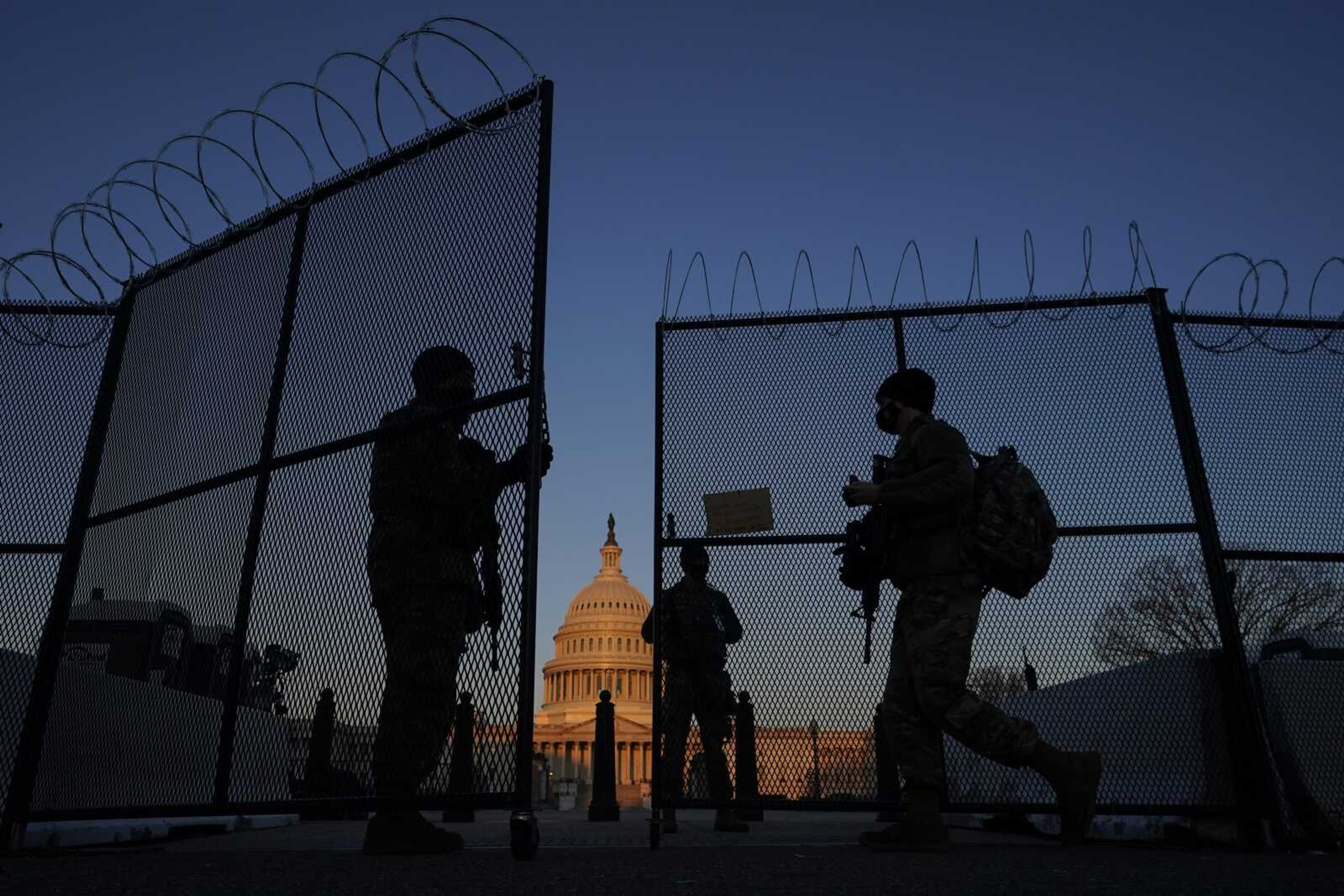More than 1,000 Guard troops now leaving DC; others stay on
WASHINGTON -- More than 1,000 National Guard members will be leaving Washington, D.C. over the next few days, but several thousand others will stay on for days or weeks, in the ongoing mission to provide security for the U.S. Capitol drawing criticism from lawmakers and reluctance from the military...
WASHINGTON -- More than 1,000 National Guard members will be leaving Washington, D.C. over the next few days, but several thousand others will stay on for days or weeks, in the ongoing mission to provide security for the U.S. Capitol drawing criticism from lawmakers and reluctance from the military.
Defense Secretary Lloyd Austin earlier this week approved the Capitol Police request to extend the deployment of nearly 2,300 Guard members for about two more months because possible threats of violence remain.
According to the National Guard, troops from some states will stay in Washington for the entire two months. Others will return home but will be replaced by service members from the same state. But some states, such as Michigan, will no longer participate in the mission.
The Capitol Police request for an extension triggered a lengthy debate in the Pentagon, as Army and Guard officials questioned the need, and wanted to know if all other options had been exhausted. Military leaders were also concerned because governors initially expressed reluctance to have their troops stay in the city.
Democratic Gov. Gretchen Whitmer made it clear she did "not have any intention of agreeing to an extension of this deployment." Some of the roughly 1,000 Michigan troops that have been in Washington have gone home, and others are leaving this weekend.
Darla Torres, spokeswoman for the National Guard Bureau, said 11 states have agreed to provide troops for the two-month mission, including three -- New Jersey, Washington and Wisconsin -- that don't currently have Guard forces in the city. The other eight -- Delaware, Hawaii, Illinois, Indiana, Kentucky, Massachusetts, Missouri and Ohio -- have forces already on Capitol Hill and have agreed to continue. Troops from the District of Columbia Guard will continue in the security mission.
As of Friday there were about 4,300 Guard troops in the city. Military officials are scrambling to juggle the logistical challenge of getting several thousand home over the next two weeks, while others flow in.
The continued deployment drew some criticism from Capitol Hill, where lawmakers expressed frustration at tall black fencing around the building and the troops on the streets, comparing it all to a walled city. But it also underscores concerns about security at the Capitol, two months after rioters breached the building in an attack that left five people dead.
Washington Democratic Rep. Adam Smith, who is chairman of the House Armed Services Committee, and Rep. Mike Rogers, R-Alabama, the ranking Republican, said while some level of support from the Guard is needed, they expressed concerns about the deployment's long-term effects.
"We cannot ignore the financial costs associated with this prolonged deployment, nor can we turn a blind eye to the effects it will soon have on the National Guard's overall readiness," they said in a statement. "It's time for us to review what level of security is required, so they can return home to their families and communities."
Many states have been using National Guard to help with COVID-19 vaccinations and other coronavirus missions.
The National Guard Association of the United States also questioned the extension, noting it was difficult for Guard leaders to find enough volunteers for the mission.
"National Guard soldiers and airmen here in Washington need to return home to their families, civilian employers and regular military obligations," said Maj. Gen. Michael McGuire, the NGAUS chairman, and retired Brig. Gen. J. Roy Robinson, the NGAUS president. "They have completed their mission. They have made us all proud. It's time for local law enforcement to take it from here."
Connect with the Southeast Missourian Newsroom:
For corrections to this story or other insights for the editor, click here. To submit a letter to the editor, click here. To learn about the Southeast Missourian’s AI Policy, click here.










